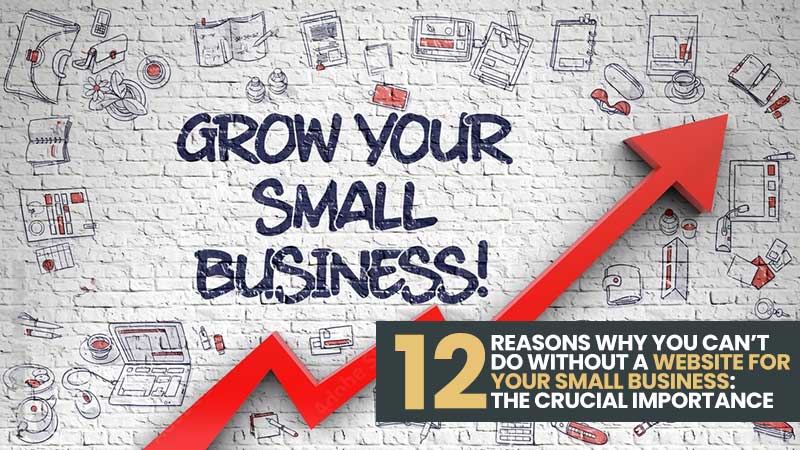The Crucial Importance of a Website for Small Business:
12 Reasons Why You Can’t Do Without One
In today’s digital age, having a website for your business is no longer optional. It’s a must-have. A website can make or break a small business, and it can be the difference between success and failure. In this article, we’ll explore the 12 reasons why a small business needs a website, and how it can benefit your business.
1. Establish Credibility and Build Trust
Having a website gives your small business credibility and builds trust with potential customers. It shows that you take your business seriously, and that you’re willing to invest in its success. Customers are more likely to do business with a company that has a professional website.
2. Improve Online Presence and Visibility
A website helps your small business become more visible online. It allows customers to find you easily, whether they’re searching for your business name or services related to your industry. With the help of search engine optimization (SEO), you can improve your website’s visibility on search engine result pages (SERPs).
3. Showcase Products and Services
Your website is the perfect platform to showcase your products and services. It allows customers to browse through your offerings at their own convenience, and learn more about your business. You can also use your website to highlight any promotions or discounts you may be offering.
4. Reach a Wider Audience
Having a website allows your small business to reach a wider audience. Your website is accessible to anyone with an internet connection, which means you can attract customers from all over the world. This is especially important if you’re targeting a specific niche or industry.
5. Enhance Customer Service and Support
A website is a great way to enhance customer service and support. You can provide customers with a FAQ section, a live chat feature, or a contact form to reach out to you directly. This allows you to address customer concerns in a timely and efficient manner.
6. Boost Customer Engagement
Your website can also help boost customer engagement. You can use social media integration, email marketing, and other marketing strategies to keep customers engaged and informed about your business. This can lead to increased customer loyalty and repeat business.
7. Gather Customer Data and Insights
A website allows you to gather valuable customer data and insights. You can use analytics tools to track website traffic, customer behavior, and other metrics. This can help you make informed business decisions and improve your overall marketing strategy.
8. Increase Sales and Revenue
A website can help increase sales and revenue for your small business. It allows you to sell products and services online, and accept payments directly through your website. This can open up new revenue streams and help grow your business.
9. Compete with Larger Businesses
A website can help small businesses compete with larger businesses. It levels the playing field and allows you to reach a wider audience, establish credibility, and showcase your products and services. With the right marketing strategy, a website can help you compete with even the biggest players in your industry.
10. Cost-Effective Marketing and Advertising
A website is a cost-effective way to market and advertise your small business. You can use SEO, social media, email marketing, and other digital marketing strategies to promote your business without breaking the bank. This can help you save money on traditional advertising methods and allocate your budget towards other important areas of your business.
11. Stay Ahead of the Competition
In today’s competitive business landscape, having a website can help you stay ahead of the competition. It shows that you’re keeping up with the times and staying on top of emerging trends. This can give you an edge over competitors who don’t have a website or are slow to adopt digital marketing strategies.
12. Improve Overall Business Success
Having a website can improve the overall success of your small business. It can help you attract new customers, increase sales and revenue, build brand awareness, and establish a strong online presence. All of these factors can contribute to the long-term success of your business.

